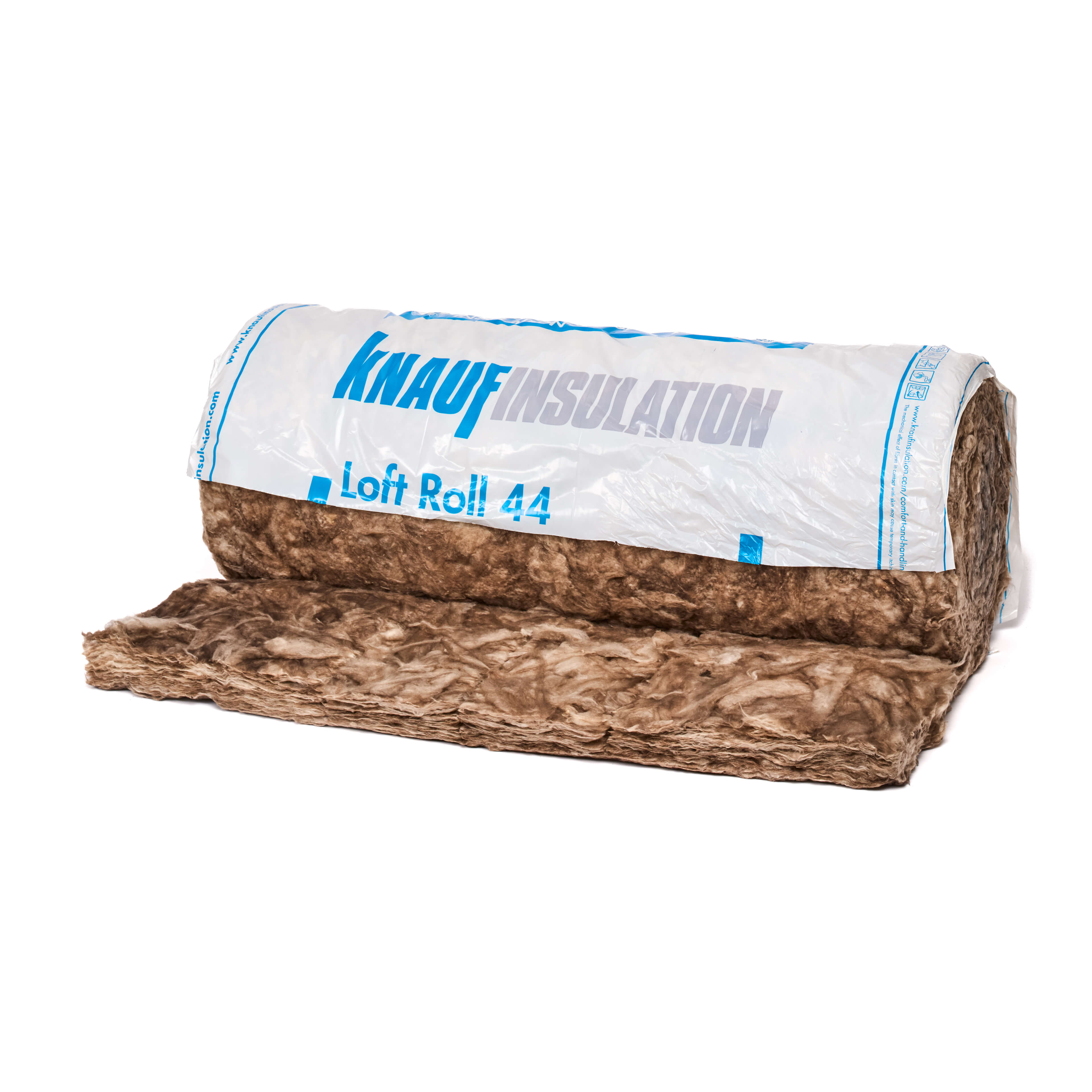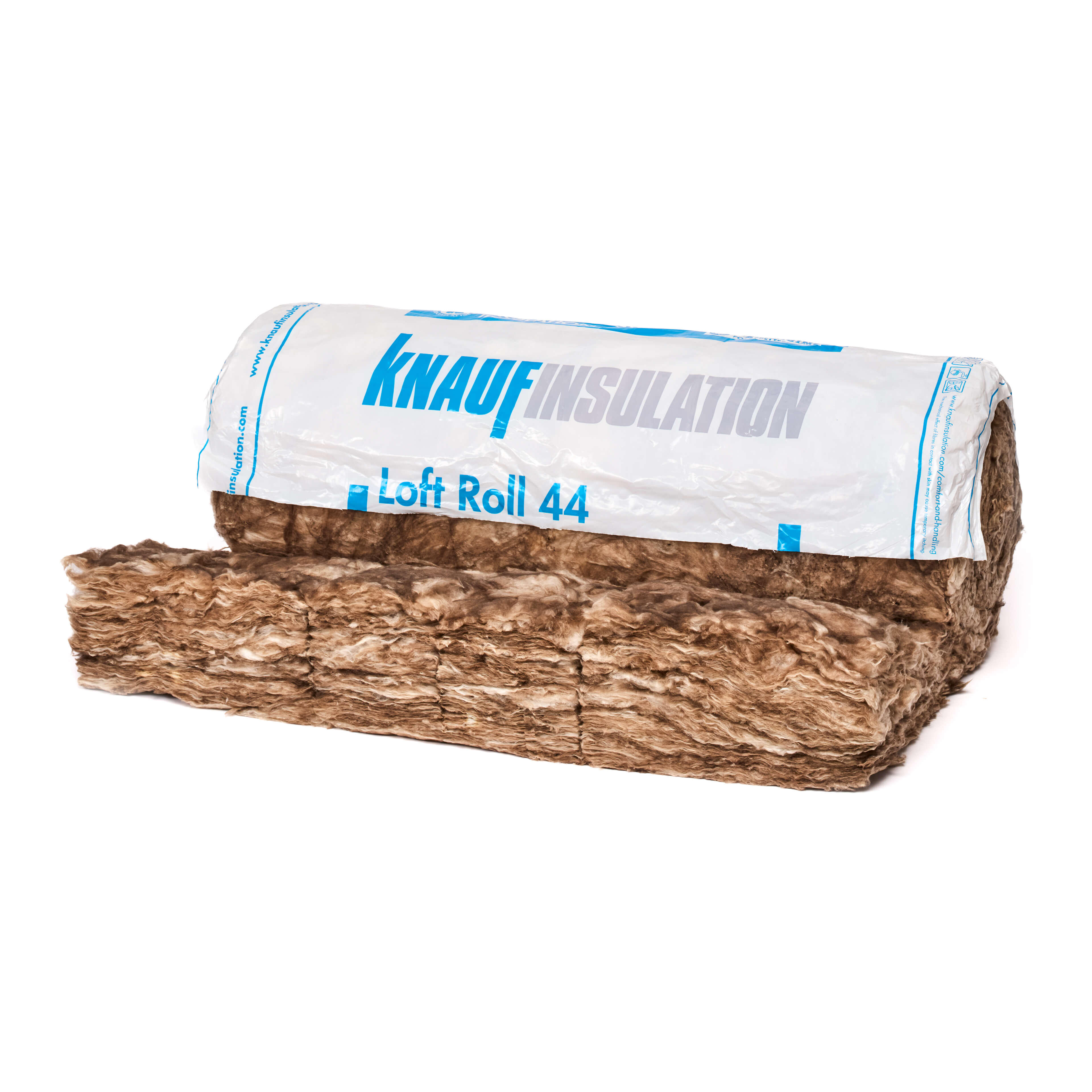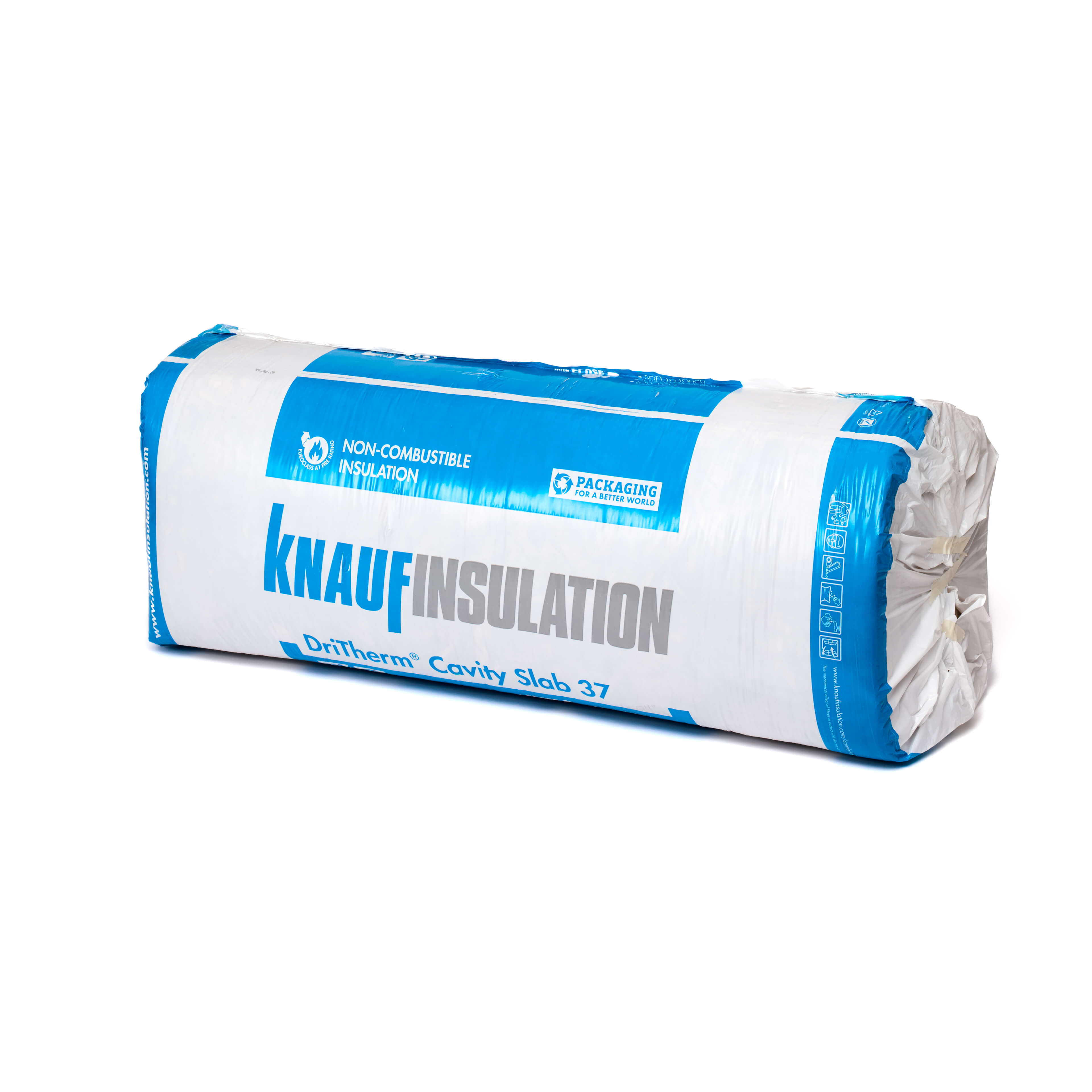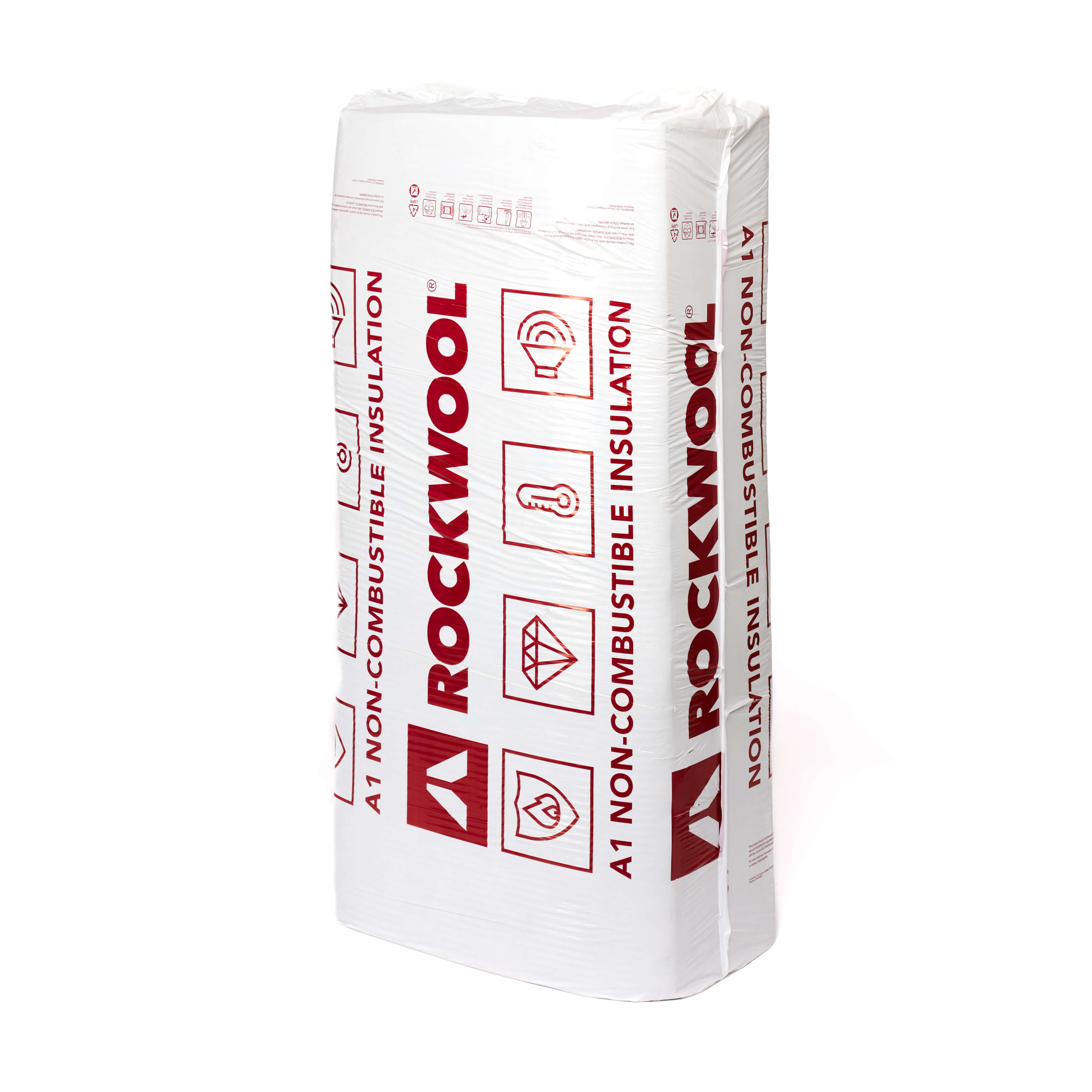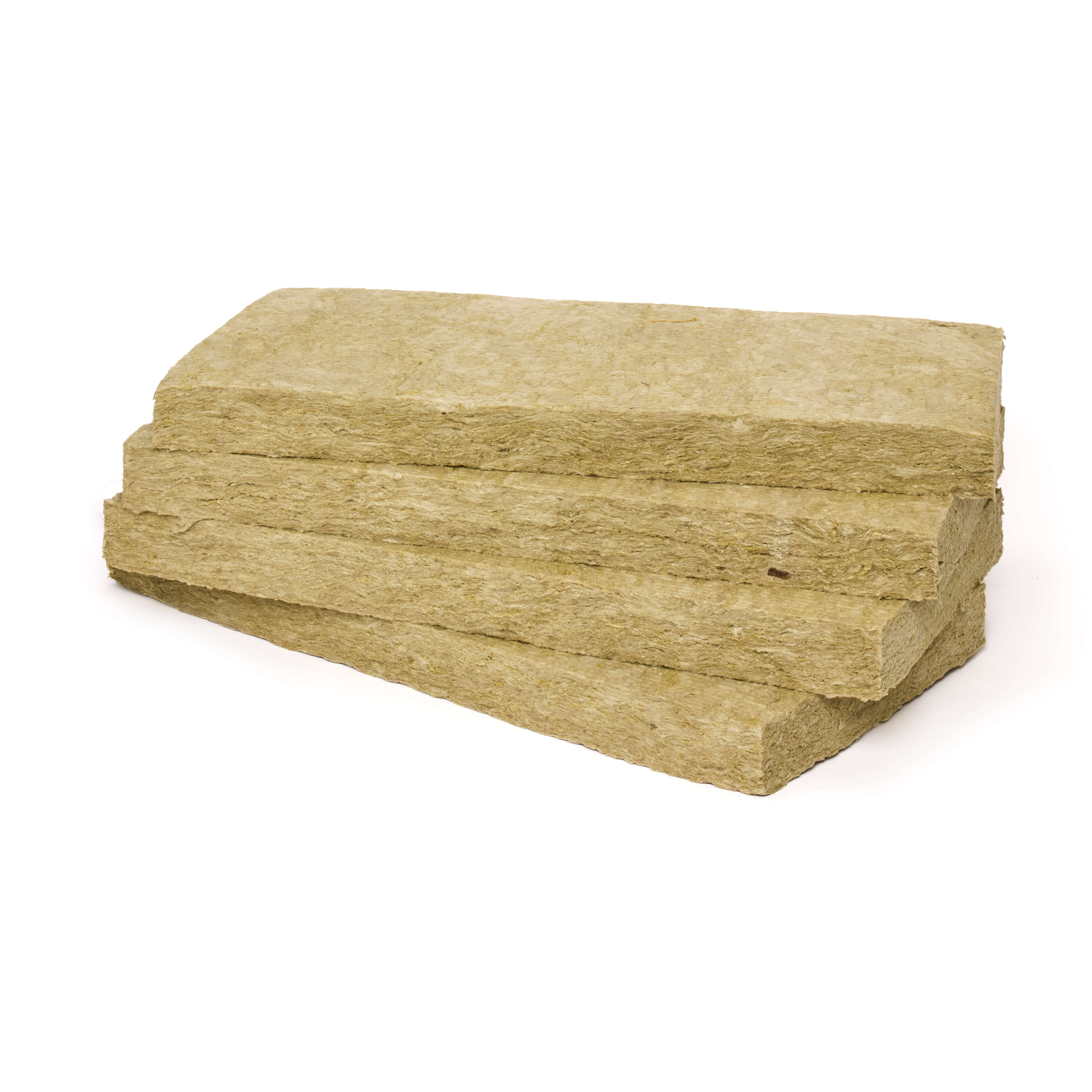Mineral Wool Insulation
(64 Products)Mineral wool insulation, sometimes called mineral fibre or mineral cotton, delivers reliable thermal and acoustic performance while offering built-in fire protection. It’s a versatile solution for insulating key areas of a home, including walls, floors, and roof voids.
What Is Mineral Wool Insulation?
Mineral wool is a catch-all term for two main products: glass wool and rock wool. The first comes from recycled glass, the second from volcanic rock. Different ingredients, but the process is nearly the same - they melt it down, spin it into fibres, and press it into rolls or batts.
Though made from different raw materials, both types are full of tiny air pockets, which give them their insulating power. This makes them effective at reducing heat loss, limiting sound transmission, and resisting fire.
They’re also flexible and easy to shape on site, so they fit well into typical construction details - whether that’s between studs, joists, or rafters.
How It Works
Mineral wool’s insulation performance comes from its structure. It's made up of countless tiny air pockets trapped between tangled fibres. Because still air doesn’t conduct heat well, this slows down the movement of warmth through the material.
Aside from keeping heat in, mineral wool also helps quiet things down. The fibres inside slow sound waves as they pass through, so less noise gets through to adjacent rooms.
Because it’s made from non-combustible materials like rock and glass, it also offers strong resistance to fire - an added layer of safety in residential or commercial buildings.
Applications
- Lofts: Mineral wool rolls or batts are often laid between and across joists to reduce heat escaping through the roof (a common area for energy loss in most homes).
- Cavity Walls: It’s also used between the two layers of masonry in cavity wall systems, either partially or completely filling the gap to boost energy efficiency.
- Internal Partitions: Within timber or metal stud walls, mineral wool helps reduce sound transfer between rooms while also improving thermal insulation.
- Floors: Installed between timber joists in suspended floors, it helps prevent heat loss to unheated spaces below and cuts down on both airborne and impact noise.
- Pitched Roofs: Fitted between rafters in sloped roofs, whether at ceiling level or rafter level, mineral wool contributes to meeting modern insulation standards.
- Flat Roofs: High-density boards made from mineral wool are commonly used in flat roofing systems.
- Steel Frame Construction: Used as infill in the wall and roof systems of steel buildings, mineral wool brings a combination of thermal, acoustic, and fire performance.
- Ducts and Pipes: Pre-formed sections or flexible mats can insulate HVAC ductwork and pipework to help reduce thermal loss and limit condensation.
Why Choose Mineral Wool?
- Thermal Performance: With mineral wool, your home holds onto heat in the winter and stays cooler in the summer. That means fewer cold spots, a more comfortable space, and less money spent on energy.
- Acoustic Control: Its open structure helps absorb sound, making it an effective solution in reducing noise between rooms, floors, and even from outside sources.
- Fire Resistance: Mineral wool won’t burn. Both glass and rock versions achieve Euroclass A1, the highest rating for non-combustibility.
- Moisture Resilience: It doesn’t trap water, and many products are treated to resist moisture absorption. At the same time, it allows water vapour to pass through, helping buildings "breathe" and stay dry.
- Stays in Place: Over time, mineral wool keeps its shape. It doesn’t slump or settle, meaning it continues to perform without needing replacement or adjustment.
- Environmentally Considerate: Glass wool incorporates recycled glass content, and rock wool frequently uses secondary materials such as blast furnace slag. This approach minimises environmental impact and conserves natural resources.
- Wide Range of Uses: With versions available in different densities, thicknesses, and forms, mineral wool can be adapted to almost any area in a building - from floors and walls to roofs and ducts.
- Quick to Install: Its semi-rigid and flexible nature makes cutting and fitting relatively easy. Installers can friction-fit batts without needing complex tools or adhesives.
- Code Compliance: Mineral wool helps meet the key requirements of UK Building Regulations, including Part L (energy efficiency), Part E (acoustics), and Part B (fire safety).
Installation Tips
- Use PPE: Mineral wool is safe to use, but gloves, eye protection, and a dust mask (preferably FFP3-rated) should always be worn to avoid irritation.
- Fit With Friction: Measure carefully and cut insulation slightly wider than the cavity, around 10 to 20 mm over, to ensure a tight fit. Gaps around the edges will reduce performance.
- Don’t Compress: The material should fully fill the space without being squashed. Voids and poorly fitted pieces can let heat and sound through.
- Protect Ventilation Paths: In lofts, make sure vents at eaves and ridges aren’t blocked. Maintain airflow using trays or stilts if required to avoid condensation build-up.
- Layer It Properly: In roof areas, one layer of mineral wool is typically placed between the joists, with a second laid over the top at a right angle. This method helps limit thermal bridging by covering timber elements more completely.
- Seal Around Openings: Where cables or pipes run through insulated cavities, seal those points carefully. Small gaps can allow heat and sound to escape.
- Use Vapour Barriers Where Needed: If a vapour control layer is required, it should be placed on the warm side of the insulation. All laps, service penetrations, and joints should be continuously sealed.
Mineral Wool Insulation Thermal Conductivity
Mineral wool insulation thermal conductivity varies from product to product. For example, Rockwool RWA45 Acoustic Slabs have a low thermal conductivity value of 0.035 W/mK, whereas Rockwool Flexi Acoustic Slabs have a thermal conductivity of 0.038 W/mK.
Frequently Asked Mineral Wool Insulation Questions
Is Mineral Wool Insulation Safe For My Home And The Environment?
Yes. Modern mineral wool products are thoroughly tested and deemed safe for indoor environments. They are typically low-VOC (Volatile Organic Compound) emitters.
Environmentally, many mineral wool products contain a high percentage of recycled content (up to 80% for some glass wools) and are recyclable themselves.
Their primary environmental benefit comes from significantly reducing a building's operational energy consumption and thus its carbon footprint.
How Long Does Mineral Wool Insulation Last, And Does Its Performance Degrade Over Time?
When installed correctly in suitable applications, mineral wool insulation is incredibly durable and designed to last the lifetime of the building it insulates, often 50 years or more.
It is dimensionally stable, meaning it resists sagging, slumping, or settlement within cavities. Its performance will not degrade unless it becomes significantly wet or physically damaged.
Does Mineral Wool Insulation Help With Soundproofing, Or Do I Need Specialist Acoustic Materials?
Yes, mineral wool is highly effective for soundproofing. Its open, fibrous structure is excellent at absorbing airborne sound, reducing reverberation and noise transfer through walls and floors.
Rock mineral wool, in particular, with its higher density, is often the preferred choice for critical acoustic applications where superior sound blocking is required for compliance with regulations like Part E (Resistance to the Passage of Sound).
How Does Mineral Wool Compare To Rigid Foam Insulation Boards (E.g., PIR/PUR) In Terms Of Performance?
Mineral wool and rigid foam boards (PIR) have different strengths. Mineral wool offers excellent thermal, acoustic, and fire performance in one product, and is highly versatile for fitting into irregular cavities.
Foam boards typically offer a slightly higher thermal performance for a given thickness (lower thermal conductivity), making them ideal where space is very limited.
However, foam boards generally don't offer the same level of inherent acoustic or fire performance as mineral wool and are less flexible for fitting. The best choice depends on the specific project priorities and constraints.


